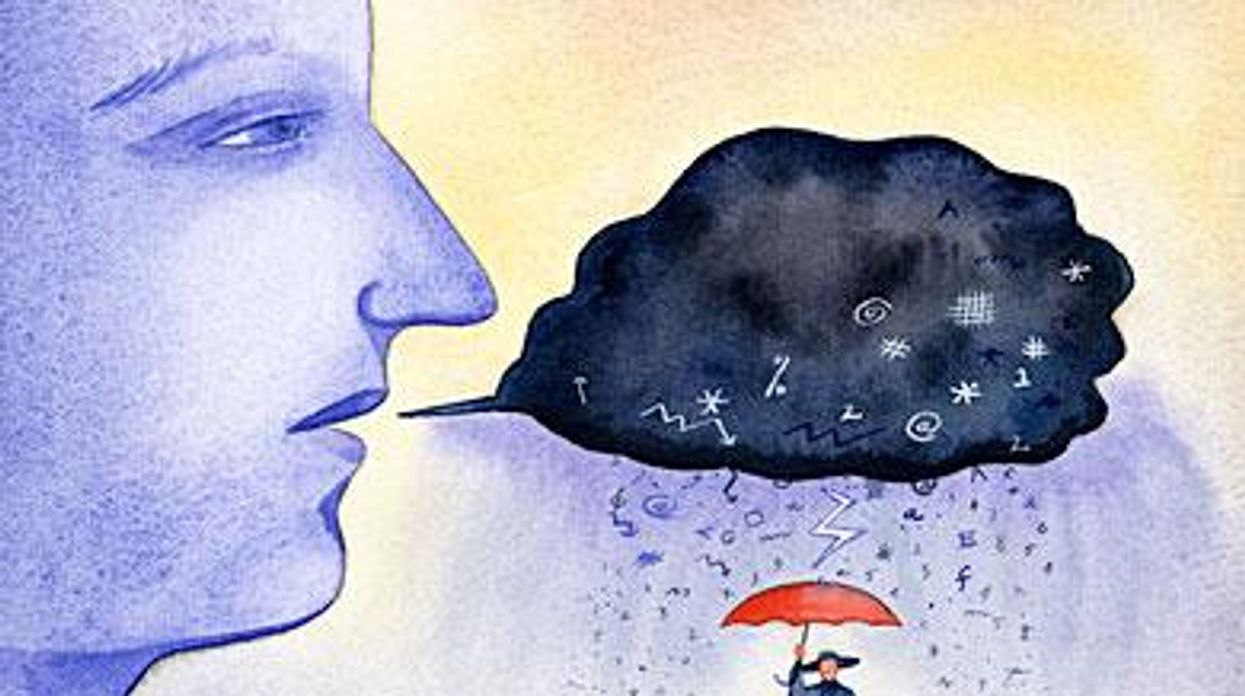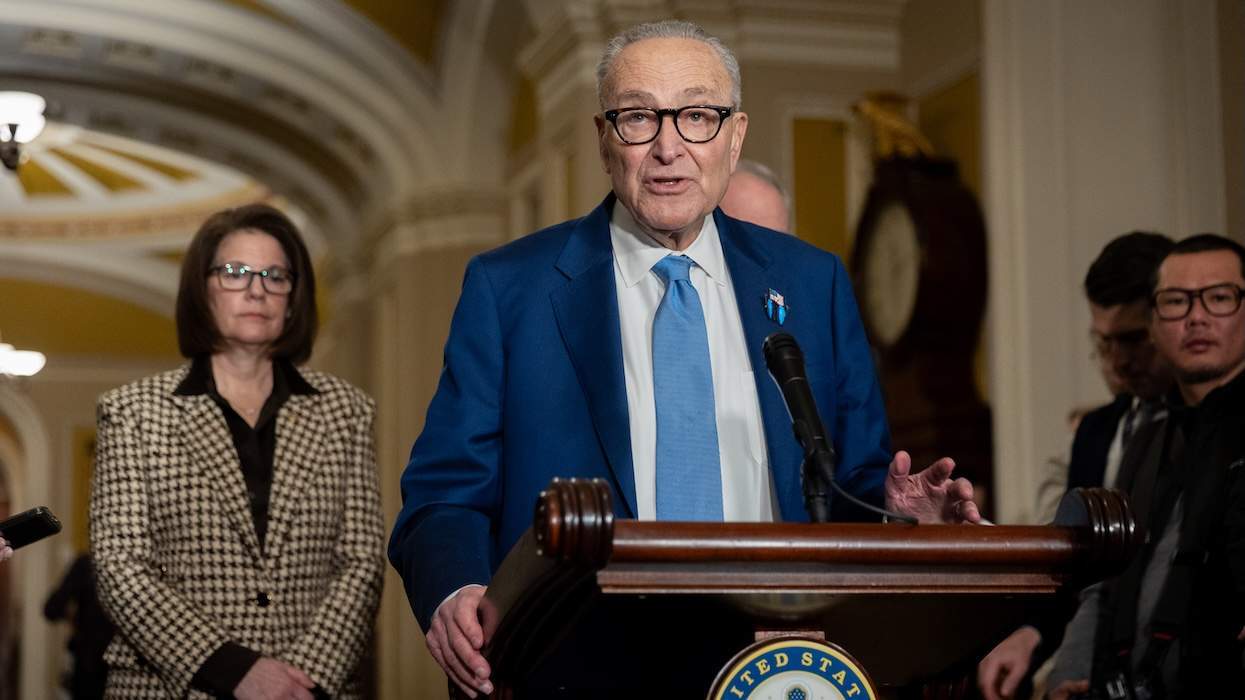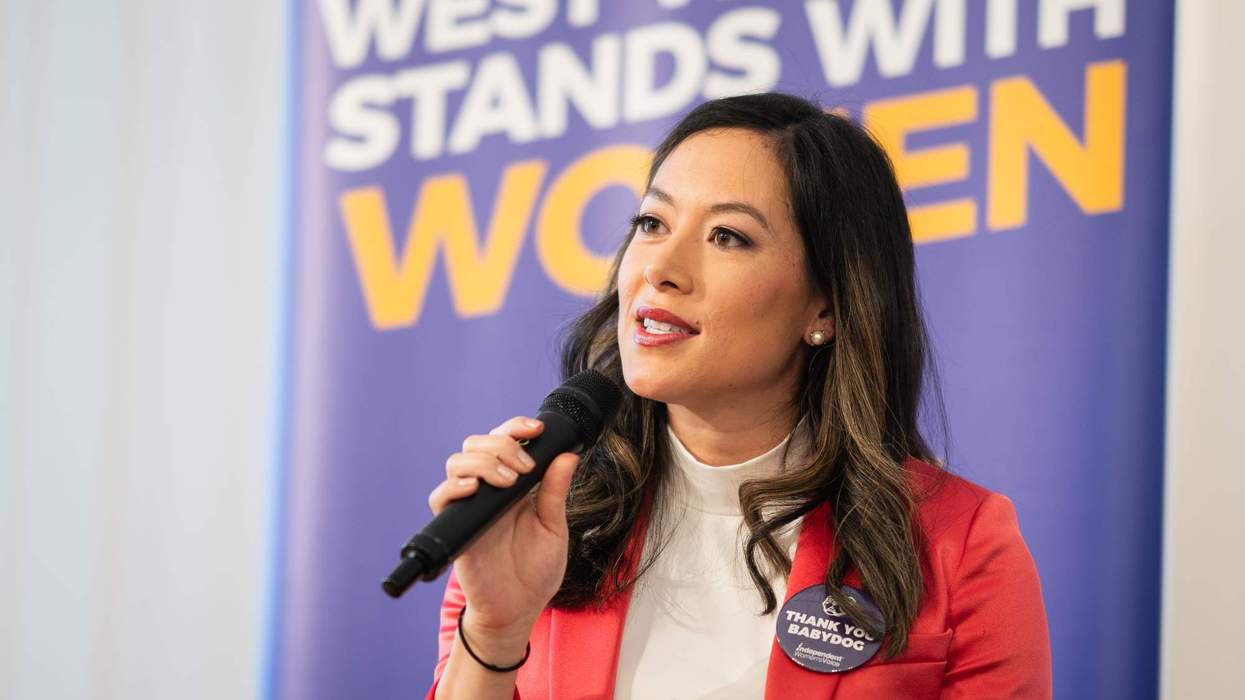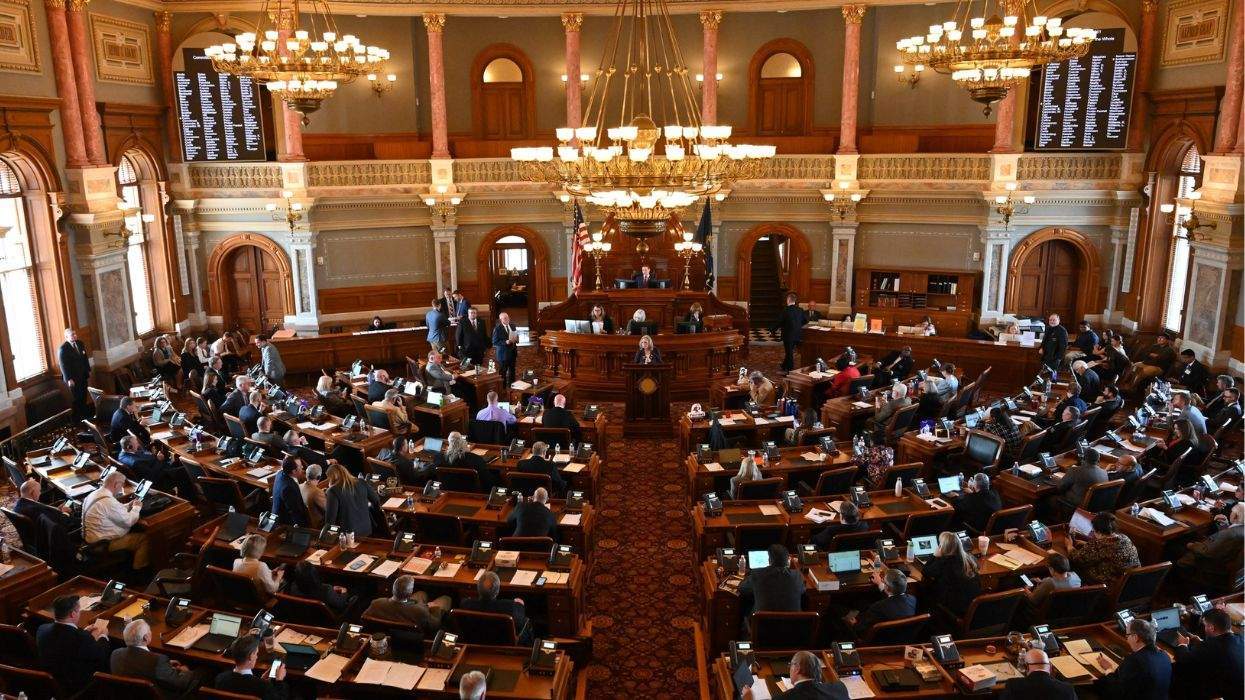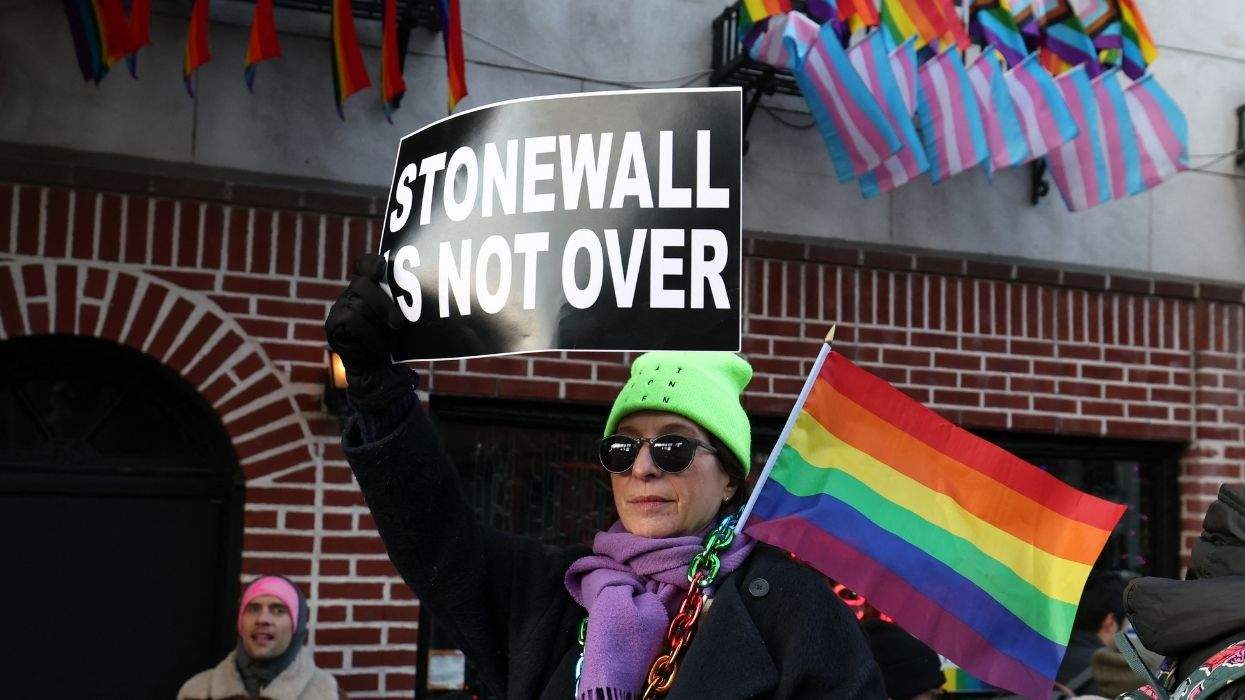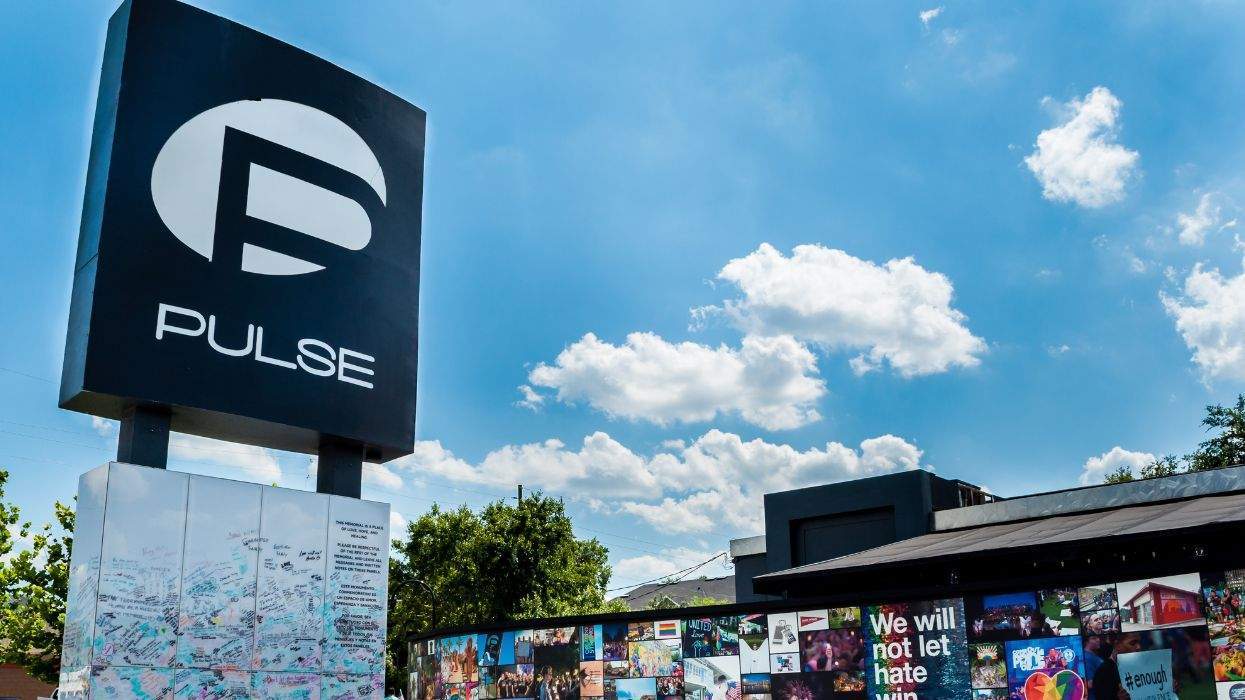Looking out from my D.C. perch, the majority of the action was in the states this week, with Vermont legalizing same-sex marriage and New York governor David Paterson vowing to introduce a marriage bill in the Empire State.
First, let's keep in mind a couple points of interest coming up in just a few weeks. The Maine legislature will host a much-anticipated public hearing on both marriage and civil union bills on April 24 (UPDATE: this date has moved forward to April 22nd at the Augusta Civic Center). Also, in New Hampshire, where a marriage-equality bill has already cleared the house (narrowly), all eyes are on a special election for a state senate seat scheduled on April 21 between Democrat Bud Martin and anti-marriage equality Republican Jeb Bradley. It's a close race and politicos are apparently using it to gauge the temperature of the electorate to some extent.
In Vermont, the next big question really comes in 2010, when constituents will weigh in on the performance of their legislators. "I probably sealed my fate," Robert South, a freshman Democrat from a conservative district, told The New York Times, referring to his vote for legalizing same-sex marriage.
Vermont will most certainly be an interesting test case, not only because it is the first legislature to successfully enact marriage without being ordered to do so by a court, but also because Vermont voters have been getting used to the idea of gay ceremonies since 2000, when the state legalized civil unions. Following that vote, 17 legislators famously lost their seats in the "Take Back Vermont" campaign, a history probably not lost on Representative South.
But since that time, LGBT activists and organizations have had a pretty stellar score card on getting pro-marriage equality legislators reelected. Ever since Massachusetts' 2003 court ruling legalized same-sex marriage, opponents of equality have mounted three successive campaigns to constitutionally limit marriage to heterosexual couples -- all of which have failed. Following the first two pushes, a total of 195 elections took place for pro-equality legislators in 2004 and 2006 and not a single one of them lost their seat. After the third push, just two pro-equality legislators were voted out in 2008 -- both during Democratic primaries. Today, 159 of Massachusetts's 200 legislators have gone on record for marriage equality.
In New York, where the state assembly passed the nation's very first bipartisan marriage bill (California's 2005 and 2007 marriage-equality bills -- both vetoed by Gov. Schwarzenegger -- never garnered a single GOP vote), the four Republicans who joined with Democrats to approve the measure in 2007 all won reelection in '08. In fact, two of those four -- Teresa Sayward and Dede Scozzafava -- represent conservative upstate districts and yet they ran unopposed.
Maggie Gallagher, president of the antigay National Organization for Marriage (yes, of ominous storm clouds ad fame ), said on NPR this week that she believed Vermont voters would be upset that legislators took time to have a marriage vote/debate. We shall see. I think legislators are more likely to be judged by their entire portfolio of accomplishments. If they have produced in the areas of education, infrastructure, and public health, they are likely to be reelected.
In fact, nothing illustrates this point better than Colorado, which now has a Democratic governor, a Democratically controlled state legislature, and went blue for Obama last November. What's so telling about this is that heading into the 2004 election, exactly the opposite was true -- the GOP controlled both state chambers and occupied the governor's mansion.
Several different political observers in the state (including professors and strategists) have told me the Republican Party ejected themselves from office by putting a laser-beam focus on "family values" to the exclusion of kitchen-table issues. By 2008, even the relatively conservative voters of Colorado's 4th district had handed walking papers to U.S. representative Marilyn Musgrave, who had forged her entire political career on social conservatism and authored the Constitutional Marriage Amendment in 2004.
And one last note on this week's wrap-up: Maggie Gallagher also mentioned that her organization would be trying to mobilize antigay activists in the Northeast to combat the strides being made on behalf of marriage equality there.
That might be difficult since the people who are most excitable on the issue are Christians -- apparently a dying breed these days. Not only has the number of Americans who claim no religious affiliation risen from 8% to 15% since 1990, notes this week's cover story of Newsweek, but the Northeast has emerged as "the new stronghold of the religiously unidentified."
The article cites R. Albert Mohler Jr., president of the Southern Baptist Theological Seminary, as posting a column reading, "A remarkable culture-shift has taken place around us ... The most basic contours of American culture have been radically altered. The so-called Judeo-Christian consensus of the last millennium has given way to a post-modern, post-Christian, post-Western cultural crisis which threatens the very heart of our culture."
If indeed the storm clouds are gathering -- as depicted in the National Organization for Marriage ad -- perhaps it is not because of same-sex couples who wish to dedicate their lives to each other. Maybe it has more to do with a radically conservative Christian theology that became so rigid, it rendered itself irrelevant to the lives of average Americans -- not far different from the Colorado Republicans.
